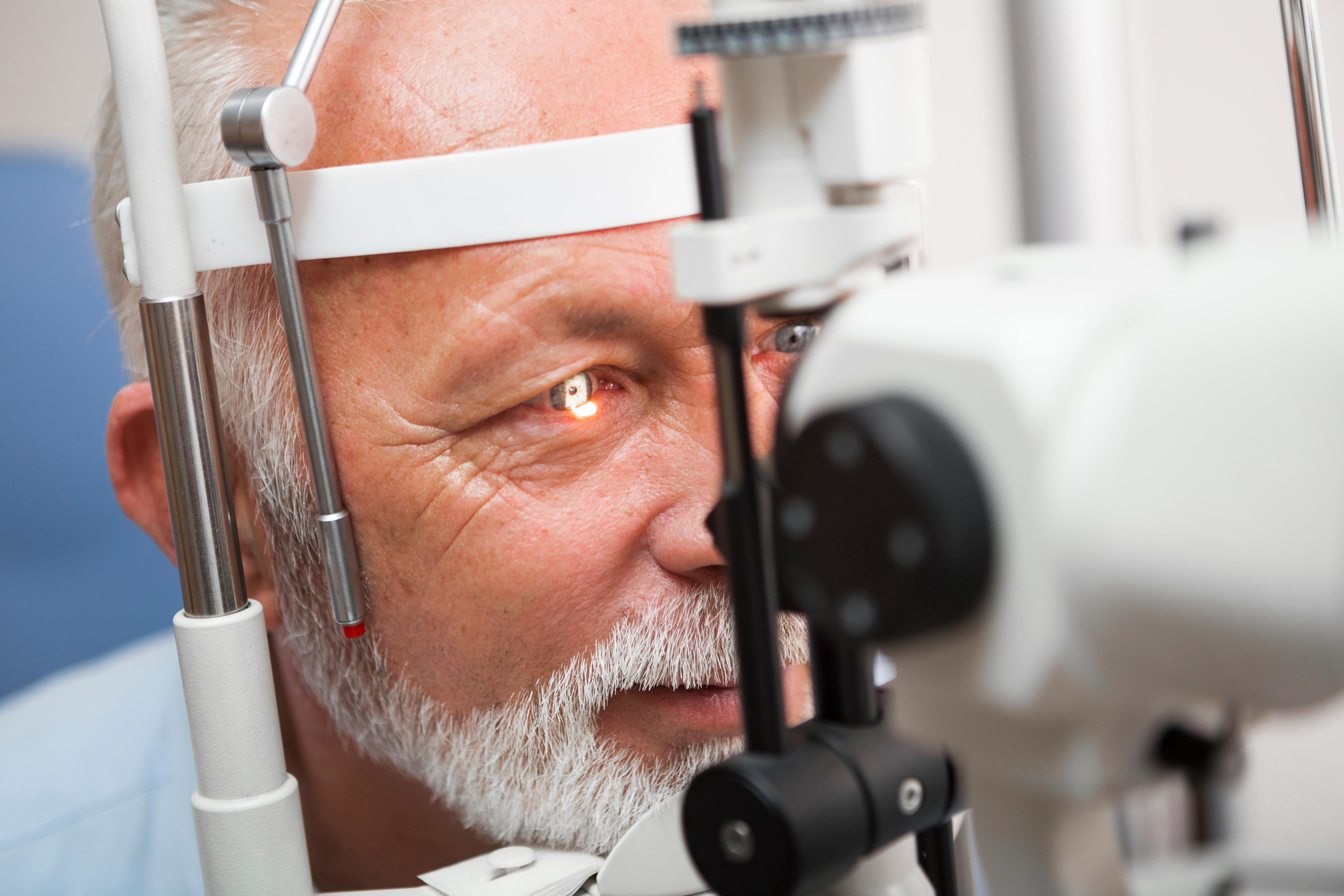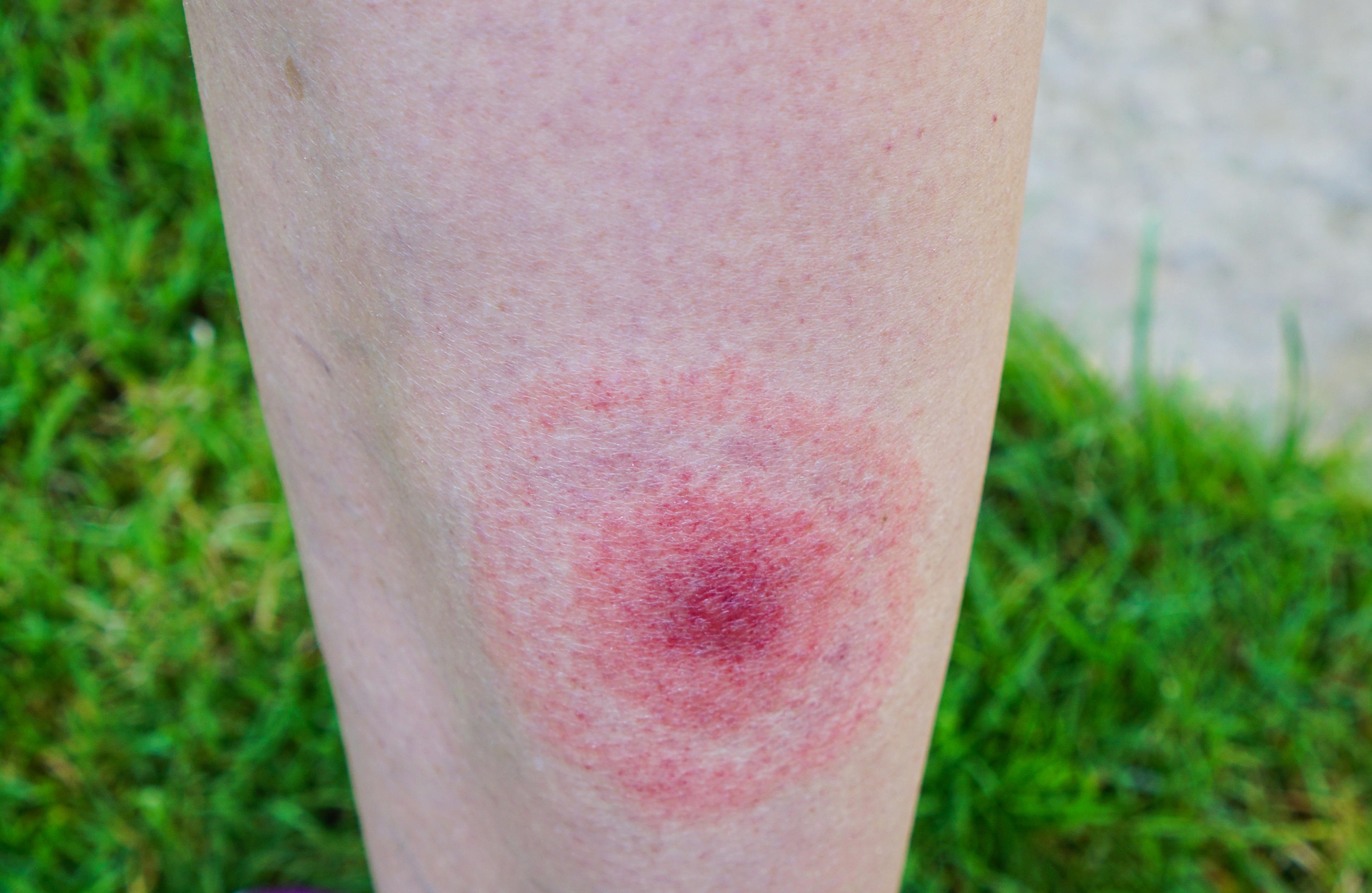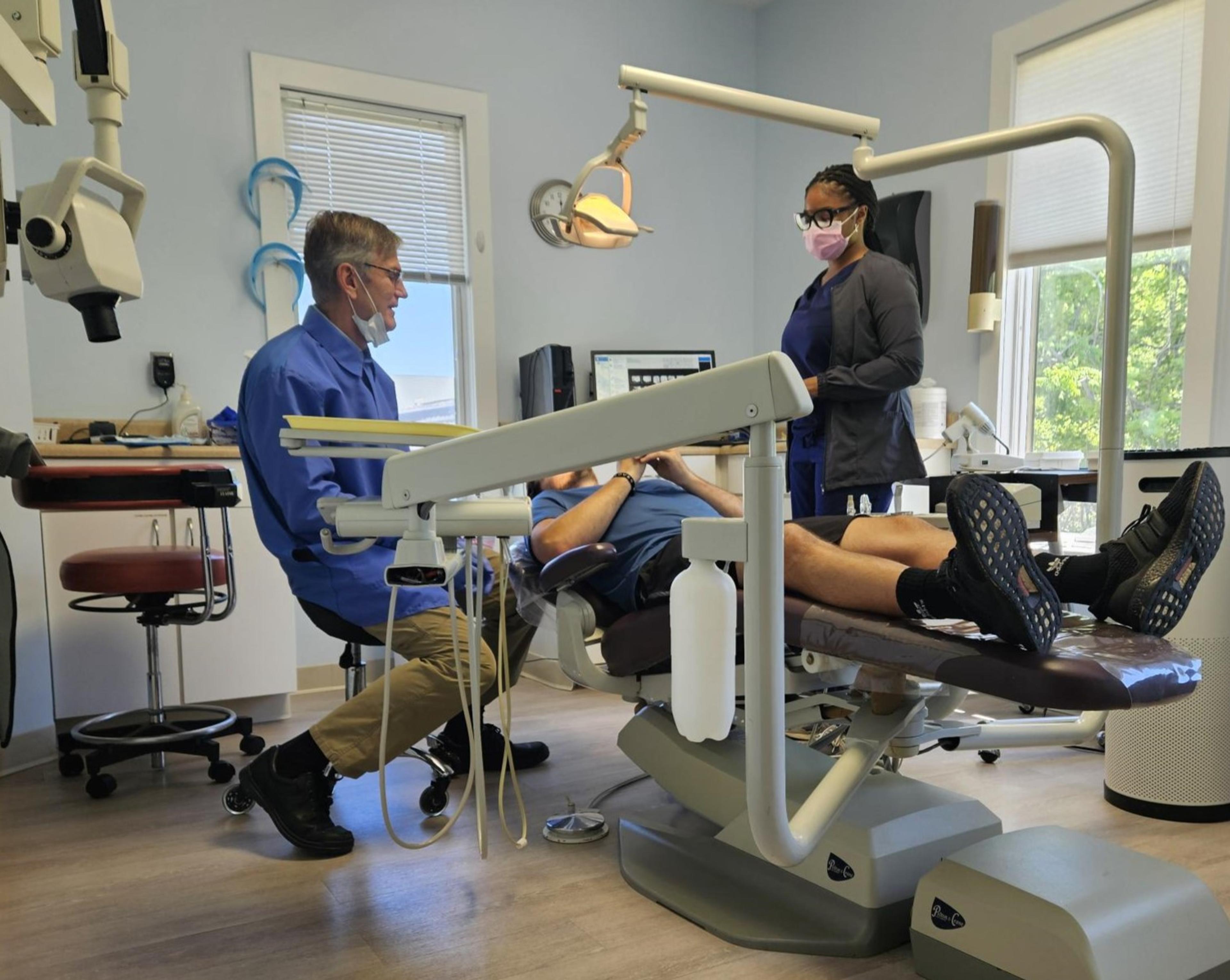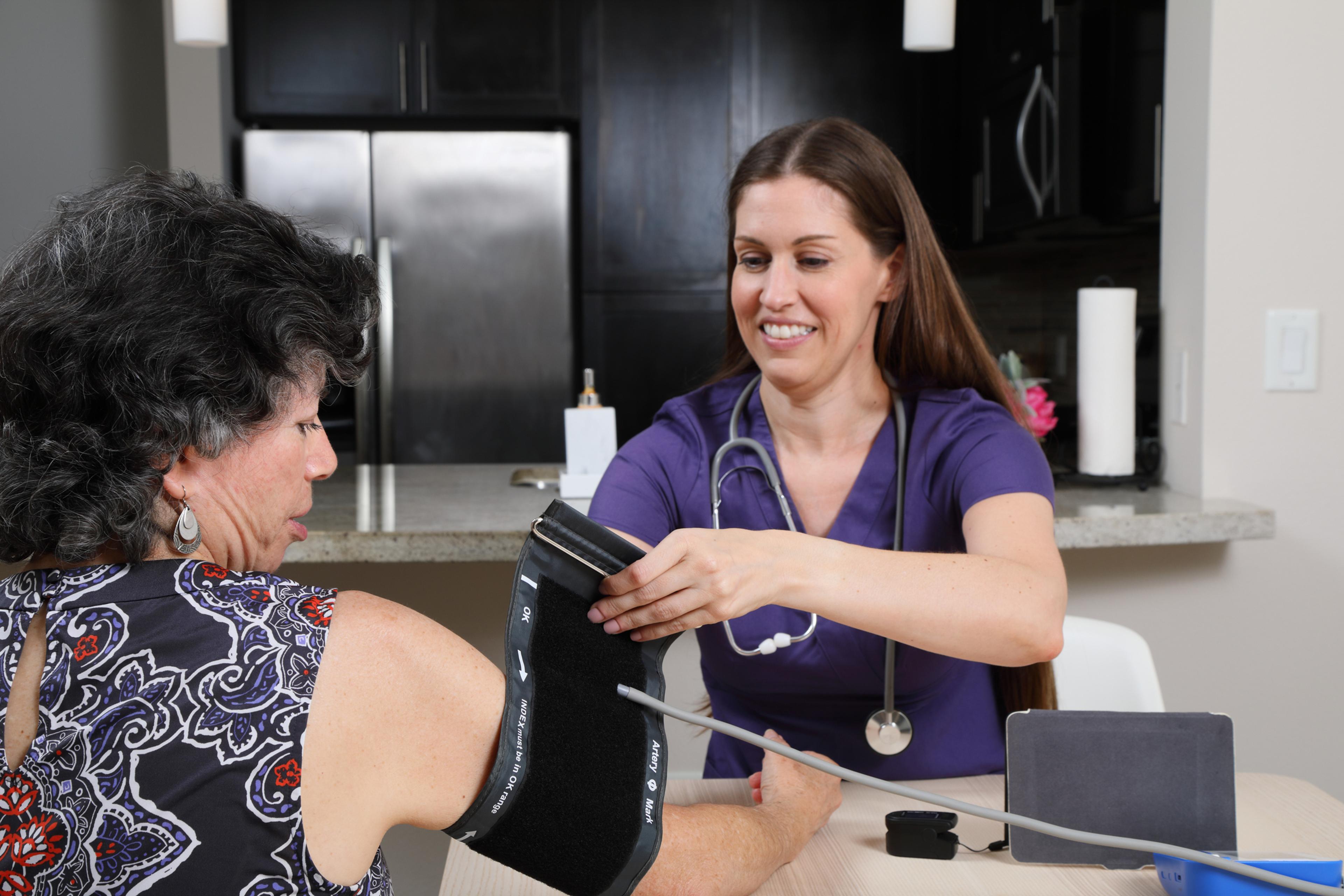
Lindsay Knake
Lindsay Knake is a brand journalist for Blue Cross Blue Shield of Michigan.
Articles

Does Caffeine Raise Blood Pressure?
- Caffeine can cause a short‑term rise of up to 10 mm Hg in blood pressure, but the spike is temporary and isn’t linked to long‑term hypertension.
- Infrequent caffeine users experience a larger increase; regular drinkers develop tolerance, so most adults can enjoy coffee or tea in moderation without raising chronic blood pressure.
- The FDA recommends limiting caffeine intake to 400 mg (about four cups of coffee) a day; people with hypertension, heart disease, pregnancy or side effects should check with their primary care provider.

What to Know About Fraudulent Covid Testing Labs
- Fraudulent “phantom” labs are filing false COVID‑19 test claims using members’ contract numbers, costing insurers and driving up premiums.
- Blue Cross Blue Shield of Michigan’s Corporate Fraud Investigations team monitors claims data and urges members to review EOBs, report unknown labs and suspicious charges to the 844‑STOP‑FWA hotline.
- Members should protect personal and insurance information and avoid “free” services that could be used to bill insurers fraudulently.

How Does AI Affect Your Brain?
- A survey of nearly 21,000 U.S. adults found daily personal use of generative AI was linked to a 30% higher risk of moderate depression, though no association was found for work-related use.
- An MIT experiment found heavier ChatGPT use was associated with greater loneliness, less real-world socialization and increased emotional dependence, though the findings are preliminary.
- Separate MIT research suggests using ChatGPT for writing tasks may reduce brain engagement and deep thinking, highlighting the need to balance AI use with critical thinking and real-world relationships.

Is Sepsis Contagious?
- Sepsis is a life‑threatening response to infection, not a contagious disease itself; the underlying bacterial, viral or fungal infections that trigger it can be spread from person to person.
- Early signs such as fever, rapid heart rate, confusion, shortness of breath or a rash require immediate medical attention, as severe sepsis or septic shock can be fatal within hours.
- Prevention focuses on good hygiene, timely vaccination, proper wound care and prompt treatment of infections, especially for high‑risk groups like older adults, pregnant women and people with weakened immune systems.

What to Know About the AHA’s New High Blood Pressure Guidelines
- Hypertension is a blood pressure of 130/80 mm Hg, and the American Heart Association recommends lifestyle changes for anyone above that level, with medication added after three to six months if pressure remains high.
- For stage 2 hypertension (140/90 mm Hg or higher), the AHA advises a single‑pill combo of two first‑line drugs to improve adherence and lower blood pressure more quickly.
- Regular monitoring — including office visits and validated home cuffs — is essential, as most people with high blood pressure are unaware of it and fewer than one‑quarter have it under control.

New Program Aims to Reduce ER Visits, Improve Primary Care in Grand Rapids Area
- Blue Cross Blue Shield of Michigan granted Catherine’s Health Center $50,000 to support its Hospital Health Navigator Program, which will place a community health worker in the Trinity Health Emergency Department.
- The community health worker will help patients with complex needs who are uninsured or underinsured transition into primary care and identify affordable health coverage options.
- The program aims to reduce unnecessary emergency department visits and hospitalizations by connecting patients to essential primary care and may be a model for other hospital systems and health care clinics.

How to Get Antibiotics Online Through Telehealth
- Telehealth visits, including through a primary care provider or services like Teladoc Health, can result in an antibiotic prescription when a bacterial infection is confirmed.
- Patients should finish the entire course and report serious side effects, such as nausea, diarrhea or allergic reactions.
- Blue Cross Blue Shield of Michigan members can access 24/7 virtual care and a nurse line for guidance on whether an antibiotic is appropriate.

Debunking Common Myths about Cervical Health
- Most people clear HPV on their own; only a small fraction develop cervical cancer, which affects about 13,000 U.S. women each year.
- The HPV vaccine greatly reduces risk but does not eliminate the need for regular Pap smears every three years for women of average risk.
- Cervical cancer often has no early symptoms, so routine screening and follow‑up of abnormal results are essential for early detection and treatment.

Cold vs. Sinus Infection
- A sinus infection can occur when a cold or upper respiratory infection causes fluid to build up in the sinuses, allowing bacteria to grow.
- The length of your illness is a key indicator of whether you have a cold or a sinus infection, with a cold typically lasting three to five days and a bacterial sinus infection lasting 10 days or longer.
- Over-the-counter medications and rest can help manage mild symptoms of both colds and sinus infections, but antibiotics may be necessary for bacterial sinus infections.

Can Food Affect Your Lifespan by the Minute?
- A University of Michigan study quantifies the health effect of foods in minutes, finding a hot dog cuts about 36 minutes off life expectancy, while nuts add roughly 26 minutes per serving.
- Cutting 10% of daily calories from beef and processed meats and replacing them with fruits, vegetables, legumes, nuts or fish could increase lifespan by about 48 minutes a day.
- Eating fiber, antioxidants and omega‑3s, getting regular exercise and avoiding tobacco and alcohol are linked to longer, healthier lives.

Is Glaucoma Hereditary?
- Glaucoma, a leading cause of blindness, often shows no symptoms; up to half of the 4 million Americans affected may be unaware they have the disease.
- A family history of glaucoma raises a person’s risk by four to nine times, making genetics one of the strongest risk factors, especially for primary open-angle glaucoma.
- The American Academy of Ophthalmology advises a comprehensive eye exam with glaucoma screening at age 40 or as early as 35 for those with a family history to catch the condition early and preserve vision.

Blue Cross Blue Shield of Michigan Vaccine Coverage Remains Unchanged
- The CDC revised its child vaccine schedule effective Jan. 5, 2026, reducing recommendations for routine shots for kids 11 and younger.
- Blue Cross Blue Shield of Michigan’s vaccine coverage has not changed; members should talk to their primary care provider about vaccines.
- Vaccines have been proven for decades to reduce the risks of contracting serious illnesses.

Simple Lifestyle Habits to Support Cervical Health
- Get the HPV vaccine, which the American Cancer Society recommends for people ages 9 to 26, to protect against the virus that causes nearly all cervical cancers.
- Follow screening guidelines: a Pap test every three years or an HPV test every five years for women 25 to 65, and act promptly on any abnormal results.
- Lower your risk by practicing safe sex, quitting smoking and supporting your immune system with a diet rich in fruits and vegetables, regular aerobic exercise, adequate sleep and stress management.

How Blue Cross is Supporting Michigan’s Health Care Safety Net
- Since 2005, Blue Cross has contributed more than $17 million in Strengthening the Safety Net grants, making it the largest private donor to Michigan’s free and charitable clinics.
- The grants have helped clinics serve more than 250,000 uninsured or underinsured patients, delivering more than two million visits, averting about 400,000 unnecessary ER trips and saving the state an estimated $200 million.
- Safety net clinics help to improve health outcomes for vulnerable populations and reduce emergency room visits and uncompensated care costs, which affect insurance premiums for everyone.

Managing Eczema During Winter Months
- Eczema is a group of skin conditions that can cause inflamed, cracked skin, especially on the head, neck, hands and feet.
- Applying a non-scented moisturizer can help protect or restore the skin barrier and reduce symptoms.
- Keeping showers short, using a humidifier, wearing sunscreen daily and wearing breathable clothing are also ways to manage eczema in the winter.

Should I Wear Compression Socks?
- Compression socks are tight, typically knee-high socks that apply pressure to your legs and help with circulation.
- These socks are common to help with stroke prevention, but have become more common with travelers and athletes.
- You can wear compression socks for several hours at a time, although the benefits of them for travel and recovery are limited.

Norovirus Cases Rise Across Michigan: Here’s What to Know
- Wastewater testing shows norovirus levels are up sharply in Michigan, with most sites reporting high concentrations as the holiday season approaches.
- Symptoms of the contagious illness appear 12 to 48 hours after exposure and can last up to three days.
- The CDC recommends thorough handwashing with soap and water, cleaning surfaces with bleach and staying home while sick.

Cheboygan’s Northern Care Center Grows, Provides Health Care for Community
- The Northern Care Center reopened in downtown Cheboygan in August, offering free primary care services three evenings a week and planning to expand hours and add dermatology, women’s health and sports physical exams.
- The clinic relies on more than 20 volunteers and recent grants, including $15,000 from Blue Cross Blue Shield of Michigan, to serve uninsured and underinsured residents and help keep them out of costly emergency rooms.
- In addition to medical care, the center provides personal care items, Goodwill vouchers and referral assistance, reinforcing its role as a vital safety net resource in the rural community.

How Stress Affects Your Appetite
- Stress can affect our appetites, either suppressing it or increasing cravings for comfort food.
- For decreased appetites, create a list of a few foods you can eat, such as oatmeal, cereal with fruit or chicken and rice.
- If you crave comfort or junk food, practice mindful eating, limit distractions while you eat and portion out healthy snacks.

Coping with Happiness Guilt Around the Holidays
- Happiness guilt refers to a complex emotion involving knowing people are struggling during the holidays while you are feeling joyful.
- Feeling guilty about your own happiness may make you feel isolated from other people.
- Acknowledging your circumstances and emotions, practicing gratitude and engaging in acts of kindness can help you take the feeling and turn it into good.

Bladder Symptoms You Shouldn’t Ignore
- Painful urination, pelvic discomfort or blood in the urine can signal infections, stones or potentially serious conditions, and should prompt immediate medical attention.
- Sudden changes in urinary habits — including frequent urination, nocturia or urgency — may indicate underlying issues such as menopause, sleep disorders, diabetes or bladder dysfunction.
- Incontinence, difficulty emptying the bladder or a weak urine stream can result from factors such as aging, UTIs or an enlarged prostate, and should be discussed with a primary care provider for evaluation and treatment.

Low Fiber Diet for Colonoscopy Prep
- Three to five days before a colonoscopy, you may want to eat low fiber foods to make the preparation easier,
- Try eating eggs and chicken, cooked vegetables like carrots and potatoes and fruit like bananas and applesauce.
- Avoid beans, nuts, whole grains and cruciferous vegetables, as well as red or purple liquids.

Early Signs of Lung Cancer
- Lung cancer is the leading cause of cancer death in the United States, but symptoms may not show until advanced stages.
- Common symptoms include a new or worsening cough, chest pain, recurring respiratory infections, wheezing and shortness of breath, among others.
- Talk to your primary care provider if you have symptoms, are or have been a smoker or have a family history of lung cancer.

Blue Cross Using AI to Help Members, Reduce Costs
- We are committed to using AI responsibly and for the benefit of our members and employees.
- Machine learning models help flag health risks, forecast member claim costs and proactively assist Medicare Advantage members, aiming to improve outcomes and lower long term care costs.
- Blue Cross Blue Shield of Michigan is deploying AI tools such as ContractsGPT and SecureGPT to help reduce administrative expenses, targeting $600 million in savings over three years.

What is Floor Time, the Viral Mental Health Trend?
Medically Reviewed by: Dr. William Beecroft, M.D.

Is There a Link Between Sleep Disorders and Alzheimer’s?
- People who sleep fewer than six hours a night more likely to develop dementia compared to those who sleep at least seven hours a night.
- Sleep apnea also significantly raises the odds of Alzheimer’s disease and other forms of dementia.
- Getting at least seven hours of sleep and following sleep hygiene habits can help lower the risk of Alzheimer’s.

Medicare Open Enrollment Scams to Avoid
- Scammers posing as Medicare officials may request personal data such as your Medicare number, Social Security number or bank details by phone, text or email.
- Beware of high-pressure tactics that urge you to buy extra coverage, pay an alleged balance or act immediately to avoid losing benefits.
- Protect yourself by hanging up on unsolicited calls, avoiding unknown links, using only official sites and reporting suspicious activity.

St. Ignace Food Pantry Helps Residents Through Community Support, Volunteers
- The St. Ignace Food Pantry serves about 800 residents of Mackinac County each year, distributing groceries and hygiene products to those in need.
- A grant from the Food Pantry Grant Program provided a refrigeration unit that lets the pantry stock fresh produce, dairy and meat.
- Volunteers and donations from community members and organizations are essential for the St. Ignace Food Pantry to provide support local residents.

Increasing Incidences of Breast Cancer in Younger Adults
- Breast cancer is rising in women under 50, increasing at a higher rate than that in older women.
- Risk factors include excess body weight, alcohol consumption, sedentary lifestyle, dense breast tissue and family history.
- Experts recommend prevention through regular screenings, exercise, a healthy diet, avoiding alcohol and tobacco and maintaining a healthy weight.

Surprising Symptoms of Menopause
- About three-quarters of women experience menopause symptoms, which can include hot flashes and sleep problems.
- Menopause can also affect your skin, eyes and hair in surprising ways.
- To manage symptoms that interfere with your daily life, talk to your primary care provider.

What is Premenstrual Dysphoric Disorder?
- PMDD has similar symptoms to PMS, but is more severe and affects about 10% compared to half who experience PMS.
- PMDD is more common in women who have anxiety, depression, a lot of stress or traumatic experiences
- Treatment for PMDD includes living a healthy lifestyle with regular exercise and a nutritious diet, and in some cases, your PCP may prescribe antidepressants.

What is Extensor Tendonitis?
- Extensor tendons run along the top of your hands and feet, allowing you to move and flex these appendages.
- Tendonitis is inflammation or irritation of the tissue that can cause pain or discomfort.
- Rest and over-the-counter pain medications are the most common treatments; surgery is rare.

How Menopause Affects Mental Health
- Menopause is a hormonal change women experience in their 40s and 50s when their reproductive years end.
- About half of women may experience anxiety and depression during menopause, especially if they've already deal with these issues previously.
- Talk to your primary care provider if you experience severe menopause symptoms, including mood swings, depression or anxiety.

Are Online Depression Tests Accurate?
- Online depression tests can offer insight into symptoms but are not a substitute for a professional diagnosis.
- Online depression tests can offer insight into symptoms but are not a substitute for a professional diagnosis. Reputable screenings, such as those from Mental Health America and the Child Mind Institute, are more reliable than unverified sources.
- Online depression tests can offer insight into symptoms but are not a substitute for a professional diagnosis. Reputable screenings, such as those from Mental Health America and the Child Mind Institute, are more reliable than unverified sources. Only trained health care providers can diagnose and treat depression, and immediate help is available through crisis lines and behavioral health access numbers.

How Does the Menstrual Cycle Affect Mental Health?
- Up to 90% of women experience premenstrual symptoms, including mood changes.
- Hormonal shifts during the menstrual cycle, especially post-ovulation drops in estrogen, progesterone and serotonin, can contribute to mental health symptoms such as depression and anxiety.
- Lifestyle changes, medications and mental health support can help manage PMS and PMDD, but it may require time to find the right treatment.

Do I Have an Addictive Personality?
- Addiction is a complex, chronic disease characterized by compulsive behaviors or substance use despite negative consequences.
- Certain traits, such as poor self-esteem, thrill-seeking and difficulty with emotional self-regulation, can increase a person's risk of developing an addiction when combined with genetic and environmental factors.
- If substance use or behaviors are interfering with daily life, relationships, work or finances, individuals can seek help from a primary care provider or mental health professional.

The Importance of Early Ovarian Cancer Detection
- Ovarian cancer is one of the deadliest cancers in women, making early detection crucial.
- Common symptoms of ovarian cancer include bloating, pelvic pain and frequent urination, but these symptoms can be difficult to diagnose.
- Women can discuss preventive measures such as birth control and genetic testing with their primary care provider, especially if they have a high risk of developing the disease.

How to Reduce Your Risk of Dementia
- A new study found that lifestyle changes, including regular exercise and a healthy diet, can slow cognitive decline and reduce the risk of dementia in older adults.
- Engaging in moderate to high-intensity exercise, such as walking or tai chi, for at least 30 minutes a day, five days a week, can help improve cognitive function and reduce dementia risk.
- Adopting a brain-healthy lifestyle, including socializing, cognitive training and good sleep hygiene, can also help delay the onset of dementia and promote overall health as people age.

How to Keep Your Bones Healthy as You Age
- Adults can help maintain strong bones by consuming 1,000 to 1,200 mg of calcium and 600 to 800 IU of vitamin D daily, depending on age and health.
- Regular exercise, including strength training and body-weight exercises like walking and running, can help stimulate bone growth and improve bone density.
- Maintaining a healthy weight, limiting alcohol consumption and quitting smoking can also help reduce the risk of bone loss and fractures.

What is Perimenopause?
- Women in their 40s may experience perimenopause, a transition to menopause, marked by symptoms such as night sweats, irritability and irregular periods.
- Perimenopause typically lasts three to four years and can cause a range of symptoms, including hot flashes and mood changes, which can be managed with medication or lifestyle changes.
- Maintaining a healthy lifestyle, including a balanced diet, regular exercise and adequate sleep, can help ease perimenopause symptoms, and women should consult their primary care provider if symptoms are severe or interfere with daily life.

What is the Connection Between Diabetes and the Gut Microbiome?
- A new study published in Nature Medicine found a potential link between the gut microbiome and Type 2 diabetes, with certain microbial species associated with an increased risk of the disease.
- Researchers say a diet rich in prebiotics and probiotics, found in foods like fruits, vegetables and fermented items, can support a healthy gut microbiome and lower the risk of Type 2 diabetes.
- To promote a healthy gut microbiome, experts recommend eating at least five servings of fruits and vegetables daily, limiting added sugars and getting regular exercise and health screenings to reduce the risk of chronic health conditions.

How to Work with Yourself Instead of Against Yourself
- Developing a positive self-relationship can improve mental health resilience by fostering self-confidence and self-worth, while a negative self-relationship can lead to increased stress, anxiety and depression.
- Practicing self-awareness and self-compassion can help you overcome self-sabotaging behaviors, such as procrastination and perfectionism, by acknowledging and reframing negative self-talk and emotions.
- Embracing your natural habits and providing yourself with a routine you'll follow can reduce stress and increase productivity.

Coalition Supports Perinatal Mental Health Across Metro Detroit
- The Southeast Michigan Perinatal Quality Improvement Coalition is working to improve maternal mental health by training healthcare providers to recognize and treat postpartum depression and anxiety disorders.
- Up to one in seven mothers experience serious mood disorders, such as postpartum depression, which can have severe symptoms including anxiety and thoughts of self-harm.
- The coalition has provided scholarships for specialized training in perinatal mental health and plans to offer more scholarships this year to continue supporting maternal mental health care in the region.

Lyme Disease Cases Up 168% in Michigan Since 2020
- Lyme disease cases in Michigan have surged 168% since 2020, with 1,215 recorded cases in 2024.
- Blacklegged ticks, which carry the bacteria that cause Lyme disease and anaplasmosis, are found in all 83 Michigan counties.
- To prevent tick bites, individuals can take precautions such as wearing permethrin-treated clothing, using EPA-approved insect repellents and performing regular tick checks.

The Danger of Heat Exhaustion and Heat Stroke
- Heat exhaustion and heat stroke are serious conditions that can occur when the body loses too much water and sodium during intense physical activity in the heat.
- If left untreated, heat exhaustion can progress to heat stroke, a life-threatening condition characterized by an inability to sweat, fainting and seizures.
- To prevent heat illnesses, individuals should drink plenty of water, take regular breaks and avoid intense outdoor work or exercise during the hottest part of the day.

Signs of High Functioning Depression
- High-functioning depression is a colloquial term referring to depression in which individuals manage daily life and responsibilities despite feeling underlying fatigue, loss of interest or irritability.
- Signs of high-functioning depression can include masking emotions and hidden dysfunction, such as taking more energy to complete tasks or sleeping in late on weekends.
- Depression is treatable with counseling, lifestyle changes and medication.

Here’s Why Heart Attack Deaths Are Decreasing But Chronic Heart Disease Deaths Are Growing
- Heart disease deaths have decreased by 66% in the past 50 years, with heart attack deaths dropping by 89%, according to a new American Heart Association study.
- Despite this decline, deaths from chronic heart conditions such as heart failure, arrhythmias and hypertensive heart disease have increased significantly since 1970, with arrhythmias rising by 450%.
- To reduce the risk of heart disease, eat a nutritious diet, get regular exercise, maintain a healthy weight and get annual physicals.

Health Habits to Lower Your Health Care Costs
- Choosing the right care location can significantly reduce health care expenses as an emergency room visit is five times more expensive than a visit to a primary care provider.
- Staying in-network with providers and using generic drugs can help lower medical costs.
- Maintaining a healthy lifestyle through diet exercise and preventive care can help reduce the risk of chronic conditions and lower health care expenses in the long run.

What to Know About Heavy Metals in Food
- Small amounts of heavy metals like arsenic and cadmium can be found in foods such as rice, fruit juice and seafood, posing health risks, especially to children.
- The FDA advises eating a varied diet of fresh fruits, vegetables, whole grains and lean meat to limit exposure to heavy metals.
- Heavy metal detoxes are not backed by research, and individuals concerned about exposure should talk to their primary care provider.
Medically Reviewed by: Shanthi Appelö

Maternal Mental Health is Getting Worse. Here is What Blue Cross is Doing to Help
- A new study found mental health among American mothers has declined during the past several years.
- Declining mental health is linked to physical health problems such as heart disease and diabetes.
- Blue Cross is working to improve access to mental health care through crisis services, virtual visits and embedded behavioral health professionals in primary care offices.

Why Do Women Live Longer Than Men?
- On average, women in the United States live about five years longer than men.
- Men are more likely to die from certain health conditions, including heart disease and diabetes, and are less likely to seek preventive care.
- To improve their health and reduce the risk of chronic conditions, men can take steps such as seeking preventive care, eating a healthy diet, exercising regularly and building relationships.

Thumb Area Community Health Partnership Works to Make Health Care Information Accessible to All
- The Thumb Area Community Health Partnership has received a grant to improve website accessibility for people with disabilities.
- The grant provide workshops to help health agencies make their websites more accessible.
- The project aims to empower individuals with disabilities by providing equal access to critical health information and services, improving overall health outcomes in the Thumb.

Why You Should Track Your Steps and Heart Rate
Medically Reviewed by: Michael Kobernick, M.D.

5 Ways to Observe Women’s Health Month
Medically Reviewed by: Dr. Patricia Ferguson, M.D.

Why Exactly is Alcohol Bad for You?
Medically Reviewed by: Michael Kobernick, M.D.

How the Burnt Toast Theory Can Improve Your Day
Medically Reviewed by: Dr. Kristyn Gregory, D.O.












































